#makerere
Explore tagged Tumblr posts
Text

Makerere College in Kampala, Uganda
British vintage postcard
#british#photo#ansichtskarte#makerere college#postal#postkaart#sepia#tarjeta#ephemera#photography#carte postale#historic#makerere#college#uganda#kampala#briefkaart#postcard#vintage#postkarte
4 notes
·
View notes
Text
91st Makerere Guild President, New Cabinet Sworn In
#91st guild President#91st guild President makerere swearing in#91st Makerere cabinet swearing in#Guild President makerere university biography#Makerere news#Makerere university guild elections#Sentamu sworn in as 91st Makerere guild President#Ssentamu sworn in
0 notes
Text
About - Julius Nyerere Leadership Centre (JNLC)


The Julius Nyerere Leadership Centre, is named after the former President of Tanzania, the late H.E. Mwalimu Julius Kambarage Nyerere. It was established on the initiative of the President of the Republic of Uganda, His Excellency Yoweri Kaguta Museveni to honour the legacy of the late H.E. Mwalimu Julius Kambarage Nyerere. Launched by HE the President on the October, 6th 2018, the Centre was set up for intergenerational dialogue on African history, the study of Africa’s revolutionary movements, and as a centre for knowledge and research.
By contextualizing problems and their solutions, the Julius Nyerere Leadership Centre draws from a wide variety of approaches, that include, innovative policy leading research, quality dialogues, youth training and mentoring, providing an important platform for distinguished African intellectuals, scholars, other accomplished Africans to share, nurture, mentor, challenge and account to the next generation of African leaders.
#julius nyerere#yoweri museveni#leadership#tanzania#uganda#makerere university#uganda management institute
0 notes
Text
VC Nawangwe presides as chancellor at 74th Makerere graduation
In the absence of the Chancellor, Makerere University’s Vice Chancellor, Professor Barnabas Nawangwe has presided over the 74th Graduation ceremony, which commenced this morning at Freedom Square. The Chancellor, as the titular head of the University, typically presides over ceremonial assemblies and confers degrees. … However, by the Universities and Other Tertiary Institutions Act 2001, as…

View On WordPress
0 notes
Text
The Phantom of the Opera Ugandan Premiere
The Phantom of the Opera will premiere in the capital city of Kampala, Uganda in May 2024 starring Peace Ayikoru and Joy Victoria Geria as Christine, as well as Mukiza and Gilbert Byamugisha as the Phantom.
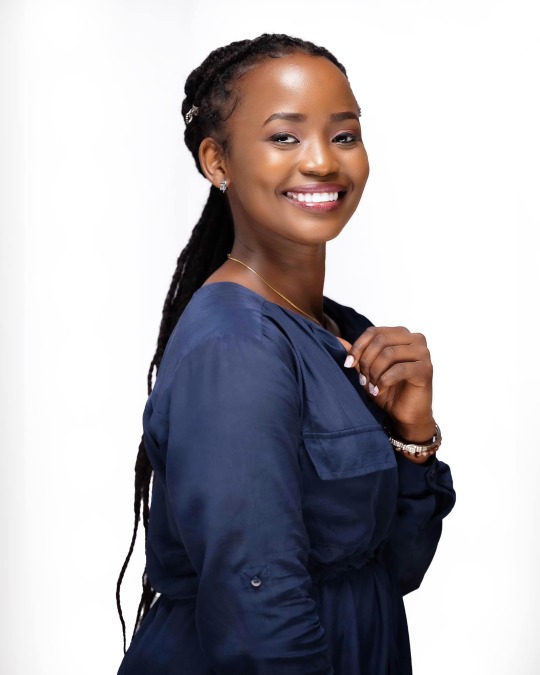

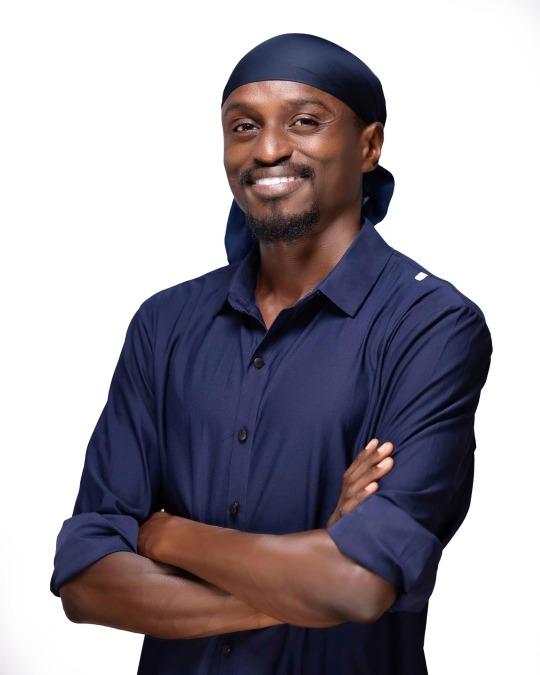
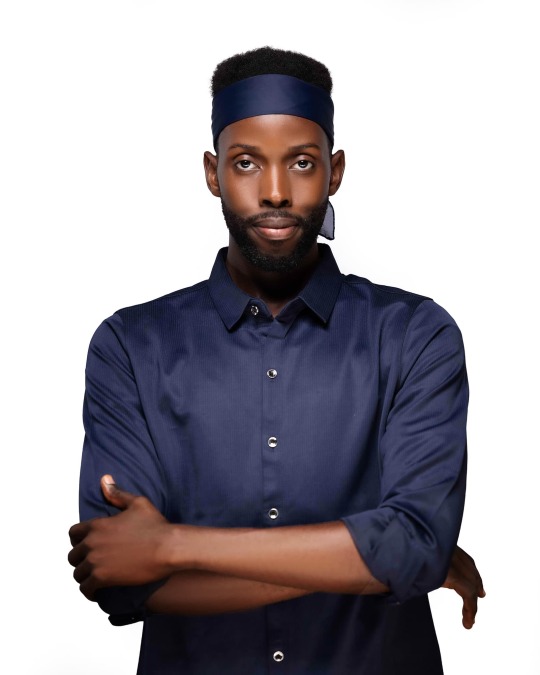
I'm not seeing a ton of information like further casting, I believe this is associated with or using the performance spaces of Makerere University in Kampala. But the use of the full face mask logo makes me think this is actually the ALW/Hart/Stilgoe version

558 notes
·
View notes
Text


Julius Nyerere (1922–1999) was a prominent Tanzanian politician, educator, and the first president of Tanzania, playing a key role in the country's independence and its development. Born in 1922 in the British colonial territory of Tanganyika (now part of Tanzania), Nyerere was educated in both Tanzania and in the United Kingdom, where he studied at Makerere University and the University of Edinburgh. His education and exposure to political ideas of self-determination and socialism influenced his vision for an independent African nation.
Nyerere became a key figure in the struggle for independence, first as a leader of the Tanganyika African National Union (TANU), which he founded in 1954, and later as the country’s first president after it gained independence from Britain in 1961. Nyerere promoted African unity and socialism, advocating for a society based on equality, social justice, and self-reliance. He pursued a policy known as "Ujamaa" (familyhood), which sought to collectivize agriculture and create communal villages to foster self-sufficiency and improve rural livelihoods. This ambitious program aimed to unite the people of Tanganyika (and later Tanzania, after the unification with Zanzibar in 1964) under a common vision of development.
Under his leadership, Tanzania adopted a one-party system, which Nyerere defended as a way to prevent ethnic divisions and promote national unity. While his policies earned him admiration for his idealism and his focus on education and health, the economic outcomes were mixed. The Ujamaa policy, in particular, faced criticism for inefficiencies and challenges related to forced villagization and economic difficulties.
Nyerere remained president of Tanzania until 1985, when he voluntarily stepped down, recognizing the challenges the country faced and choosing to give way to a new generation of leadership. After retiring from politics, Nyerere continued to be active in African and global affairs, serving as an elder statesman advocating for African unity, peace, and social justice.
Julius Nyerere passed away on October 14, 1999, at the age of 77, after a battle with leukaemia. His death marked the end of an era in Tanzania, where he had been a beloved and influential leader. Nyerere left behind a mixed legacy: he is celebrated for his role in securing Tanzania's independence, promoting education and health care, and advocating for African unity, but his economic policies, particularly Ujamaa, remain subjects of debate.
Despite the controversies over his policies, Nyerere is still regarded as one of Africa's most respected and revered leaders, admired for his moral integrity, commitment to self-reliance, and his vision for a united and just Africa. His influence continues to be felt in Tanzania and beyond, as his ideas on development, socialism, and Pan-Africanism continue to shape discussions in African politics.🇹🇿
#black people#black history#black#blacktumblr#black tumblr#pan africanism#black conscious#africa#black power#black empowering#african culture#african history#black revolutionaries#Julius Nyerere#tanzania
24 notes
·
View notes
Text
"Those questions, sister, those questions stand stab jab and gore too close to the centre! For if we had asked why Jane Austen’s people carouse all day and do no work
would Europe in Africa have stood the test of time? and would she still maul the flower of our youth in the south? Would she? Your elegance of deceit, Jane Austen, lulled the sons and daughters of the dispossessed into a calf-love with irony and satire around imaginary people. While history went on mocking the victims of branding irons and sugar-plantations that made Jane Austen’s people wealthy beyond compare!
Eng. Lit., my sister, was more than a cruel joke — it was the heart of alien conquest. How could questions be asked at Makerere and Ibadan, Dakar and Fort Hare — with Jane Austen at the centre? How could they be answered?"
-- Felix Mnthali (Malawi), "The Stranglehold of English Lit. (for Molara Ogundipe-Leslie)"
8 notes
·
View notes
Text
15 Things to do in Kampala
📍 15 Things to Do in Kampala
1️⃣ Experience Buganda’s royal heritage at the Kasubi Tombs, Kabaka’s Palace, and the Katereke Prison Ditch.
2️⃣ Visit Kampala’s iconic religious sites, from the Bahá'í Temple to Rubaga Cathedral, Namirembe Cathedral, and Old Kampala Mosque.
3️⃣ Discover the artistic vibrancy of Kampala at top galleries like Karibu Art Gallery, Umoja Art Gallery, Uganda Art Gallery, Makerere Art Gallery, AKA Gallery, and the Afriart Gallery
4️⃣ Reflect on courage and faith at the Uganda Martyrs Shrine and Munyonyo Martyrs’ Shrine.
5️⃣ Learn about Uganda’s National history through its national monuments, including the Independence Monument and the World War Memorial Monument.
6️⃣ Go to Uganda National Museum for history and experience live cultural performances at Ndere Cultural Centre.
7️⃣ Explore the city’s vibrant markets, like Owino and Nakasero Markets, and try Uganda’s famous Rolex, the street food you’ll never forget
8️⃣ Experience Kampala’s vibrant nightlife in Kololo and Kabalagala.
9️⃣ Explore the historic Makerere University, one of Africa’s most prestigious institutions, and and visit the Sir Edward Muteesa II Museum which was officially opened in February 2024.
🔟 Take a guided walking or hiking tour of Kampala’s seven famous hills. Highlights include Namirembe Hill, Rubaga Hill, and Makerere Hill, offering a mix of culture, history, and stunning views.
1️⃣1️⃣ Experience the vibrancy of Uganda’s performing arts at the National Theatre or LaBonita Theatre, where traditional dances, plays, and musical performances bring Uganda’s stories to life.
1️⃣2️⃣ Kampala is home to some amazing coffee shops where you can sample Uganda’s world-renowned coffee. Favorites include Endiro Coffee, 1000 Cups, and Good African Coffee.
1️⃣3️⃣ Take a responsible tourism trip with a guided tour of Kisenyi, offering an authentic look into the resilience and daily lives of Kampala’s urban communities.
1️⃣4️⃣ For sports enthusiasts, Lugogo is the hub for cricket, basketball, rugby, and more. It’s also a prime spot for concerts and major festivals in Kampala.
1️⃣5️⃣ Cap off your adventure with a serene sunset cruise on Lake Victoria, the perfect ending to a day in Kampala.
2 notes
·
View notes
Text
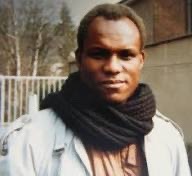
Henry Nkole Tayali (November 22, 1943 – July 22, 1987) was a multi-lingual painter, sculptor, printmaker, raconteur, and lecturer. He has been described as Zambia’s most famous painter.
He was born to Edward Nkole Tayali and Esnati Mumba Tayali (née Chola) in Serenje in the British Colony of Northern Rhodesia, a town near the site of the Nsalu 12,000-year-old rock and cave paintings. His father emigrated from Northern Rhodesia to work in Bulawayo in Southern Rhodesia, ending up in the Department of Housing and Amenities.
He was awarded a Zambian Government scholarship to study at Makerere University in Kampala, where he graduated with a BA. He returned to Zambia and started work at the University of Zambia where he joined the Institute of African Studies in Lusaka as a lecturer in African art and as a University Artist. He got a German Academic Exchange Service scholarship to study for an MFA at the Staatliche Kunstakademie Düsseldorf. He was the first recipient of the DAAD to be selected from south of the equator.
He married Regina Mary Birungi Kivubiro (1971-76) and they had a son. He married Rosemary Kuluwa and they had two children. His son Rhodrick is an artist and interior designer by training and a graduate of the Fachhochschule Aachen and is an accomplished artist. #africanhistory365 #africanexcellence
2 notes
·
View notes
Text
A RISING GLOBAL ADVOCATE FOR HUMANITY AND SOCIAL CHANGE
Ambassador Sean Bardoo the Human Rights Ambassador for HRH Queen Maria Amor also known as the "Traveling Queen of the World," has emerged as one of the fastest-rising public figures, combining celebrity influence with a powerful global commitment to humanitarian efforts. His dedication to humanity is not only evident in his personal life but also in his public service work, which spans multiple continents and numerous causes.

Ambassador Sean Bardoo
Ambassador Sean has made it his mission to help countries and communities across the globe, that are in critical need of assistance with a special focus on vulnerable populations, such as orphans in Uganda, Africa and other areas of the world like Malawi, Guyana, & Dominican Republic.
In addition, he is also a human & sex trafficking expert and works tirelessly to end modern day slavery through education, policy and human rights advocacy break the chains to freedom of torture, abuse & exploitation of humans. He has spoken and presented at several forums globally such as at the Makerere University, Northeastern University & the American Bar Association International Law- Comparative International Responses to Combatting the Crime of Human Trafficking.
His efforts have brought about real change, as he spearheads impactful projects, such as building libraries across the world. Where that includes a significant book drive initiative for education in the country of Cameroon. Leveraging his personal influence, he has collected thousands of books that will be shipped to a bilingual school in Cameroon, providing access to education and knowledge in a region where resources are often limited.

Ambassador Sean Bardoo Visits Uganda

Teenage Mother's Project Uganda
His humanitarian work doesn’t stop there. Ambassador Bardoo has also launched a “Laptop Project for Humanity” in collaboration with the We Care For Humanity (WCH) in Uganda and Kenya. This initiative donates computers to assist students in underdeveloped areas, giving them the tools to improve their education and future prospects. His efforts have already made a significant difference in the lives of many, as these projects bridge gaps in access to technology and learning.
Ranked among the world’s most admired public figures—alongside the likes of Prince Harry and Meghan Markle—Ambassador Bardoo joins a growing list of influential humanitarians making a global impact. Similar to the efforts of Malala Yousafzai, who advocates for girls’ education globally, and climate activist Greta Thunberg, Bardoo’s work transcends borders, embodying a shared vision of global progress and human rights advocacy.

Prince Harry and Meghan Markle
His actions resonate with those of world leaders like former U.S. President Bill Clinton, whose Clinton Foundation has championed global health initiatives, and Oprah Winfrey, whose philanthropy continues to support education and leadership development across the world.

42nd U.S. President Bill Clinton
Ambassador Bardoo has even taken his advocacy to the United Nations, supporting the global development of essential needs for humanity. His legal training and status as a fashion icon further enrich his contributions, allowing him to inspire others through both his professional and philanthropic endeavors.
For Ambassador Bardoo, humanity is not just a career—it is a calling. He believes that material possessions hold little value after death, but love, compassion, and kindness toward others are the lasting legacies that transcend life. His philosophy of serving mankind with heart and purpose is a message that continues to resonate around the world.
Written By: Mohammad Razza - Reporter of Dubai Royal News
3 notes
·
View notes
Text
Researchers study differences in attitudes toward Covid-19 vaccines between women and men in Africa
New Post has been published on https://thedigitalinsider.com/researchers-study-differences-in-attitudes-toward-covid-19-vaccines-between-women-and-men-in-africa/
Researchers study differences in attitudes toward Covid-19 vaccines between women and men in Africa
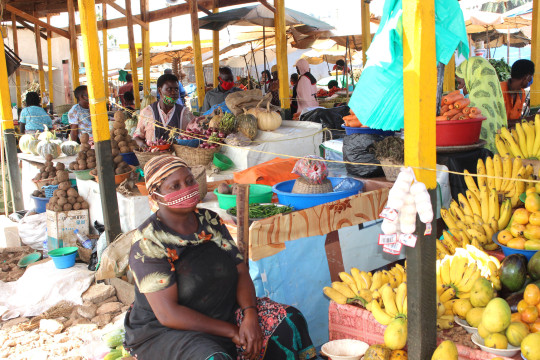

While many studies over the past several years have examined people’s access to and attitudes toward Covid-19 vaccines, few studies in sub-Saharan Africa have looked at whether there were differences in vaccination rates and intention between men and women. In a new study appearing in the journal Frontiers in Global Women’s Health, researchers found that while women and men self-reported similar Covid-19 vaccination rates in 2022, unvaccinated men expressed more intention to get vaccinated than unvaccinated women.
Women tend to have better health-seeking behaviors than men overall. However, most studies relating to Covid-19 vaccination have found that intention has been lower among women. “We wondered whether this would hold true at the uptake level,” says Rawlance Ndejjo, a leader of the new study and an assistant lecturer in the Department of Disease Control and Environmental Health at Makerere University.
The comparable vaccination rates between men and women in the study is “a good thing to see,” adds Lula Chen, research director at MIT Governance Lab (GOV/LAB) and a co-author of the new study. “There wasn’t anything gendered about how [the vaccine] was being advertised or who was actually getting access to it.”
Women’s lower intention to vaccinate seemed to be driven by concerns about vaccine safety, suggesting that providing factual information about vaccine safety from trusted sources, like the Ministry of Health, could increase uptake.
The work is a collaboration between scholars from the MIT GOV/LAB, Makerere University’s School of Public Health in Uganda, University of Kinshasa’s School of Public Health in the Democratic Republic of the Congo (DRC), University of Ibadan’s College of Medicine in Nigeria, and Cheikh Anta Diop University in Senegal.
Studying vaccine availability and uptake in sub-Saharan Africa
The authors’ collaboration began in 2021 with research into Covid-19 vaccination rates, people’s willingness to get vaccinated, and how people’s trust in different authorities shaped attitudes toward vaccines in Uganda, the DRC, Senegal, and Nigeria. A survey in Uganda found that people who received information about Covid-19 from health workers were more likely to be vaccinated, stressing the important role people who work in the health-care system can play in vaccination efforts.
Work from other scientists has found that women were less likely to accept Covid-19 vaccines than men, and that in low- and middle-income countries, women also may be less likely to get vaccinated against Covid-19 and less likely to intend to get vaccinated, possibly due to factors including lower levels of education, work obligations, and domestic care obligations.
Previous studies in sub-Saharan Africa that focused on differences between men and women with intention and willingness to vaccinate were inconclusive, Ndejjo says. “You would hardly find actual studies on uptake of the vaccines,” he adds. For the new paper, the researchers aimed to dig into uptake.
People who trust the government and health officials were more likely to get vaccinated
The researchers relied on phone survey data collected from adults in the four countries between March and July 2022. The surveys asked people about whether they’d been vaccinated and whether those who were unvaccinated intended to get vaccinated, as well as their attitudes toward Covid-19, their trust in different authorities, demographic information, and more.
Overall, 48.5 percent of men said they had been vaccinated, compared to 47.9 percent of women. Trust in authorities seemed to play a role in people’s decision to vaccinate — receiving information from health workers about Covid-19 and higher trust in the Ministry of Health were both correlated with getting vaccinated for men, whereas higher trust in the government was correlated with vaccine uptake in women.
Lower interest in vaccines among women seemed related to safety concerns
A smaller percentage of unvaccinated women (54 percent) said they intended to get vaccinated, compared to 63.4 percent of men. More unvaccinated women said they had concerns about the vaccine’s safety than unvaccinated men, which could be driving their lower intention.
The researchers also found that unvaccinated women and men over 40 had similar levels of intention to get vaccinated — lower intention in women under 40 may have driven the difference between men and women. Younger women could have concerns about vaccines related to pregnancy, Chen says. If this is the case, the research suggests that officials need to provide additional reassurance to pregnant people about vaccine safety, she adds.
Trust in authorities also contributed to people’s intention to vaccinate. Trust in the Ministry of Health was tied to higher intention to vaccinate for both men and women. Men with more trust in the World Health Organization were also more likely to intend to vaccinate.
“There’s a need to deal with a lot of the myths and misconceptions that exist,” Ndejjo says, as well as ensure that people’s concerns related to vaccine safety and effectiveness are addressed. Officials need “to work with trusted sources of information to bridge some of the gaps that we observe,” he adds. People need to be supported in their decision-making so they can make the best decisions for their health.
“This research highlights linkages between citizen trust in government, their willingness to get vaccines, and, importantly, the differences between men and women on this issue — differences that policymakers will need to understand in order to design more targeted, gender-specific public health interventions,” says study co-author Lily L. Tsai, who is MIT GOV/LAB’s director and founder and the Ford Professor of Political Science at MIT.
This project was funded by the Bill & Melinda Gates Foundation.
#2022#Africa#amp#author#bridge#Collaboration#college#covid#covid 19#data#deal#democratic#Design#Difference Between#Disease#driving#education#Environmental#Ford#Foundation#Gender#Global#governance#Government#Health#Health sciences and technology#how#it#LESS#Medicine
2 notes
·
View notes
Text
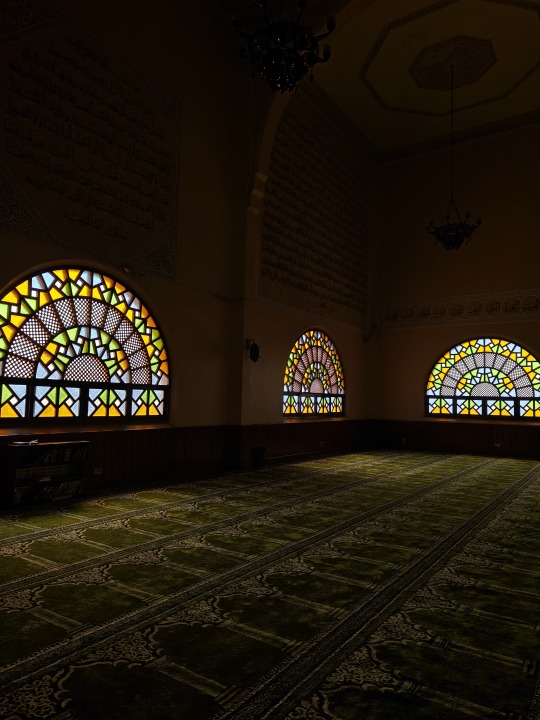
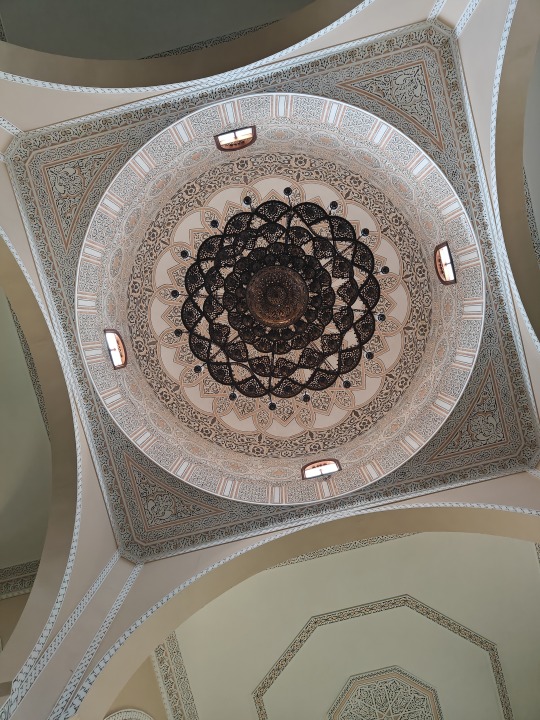
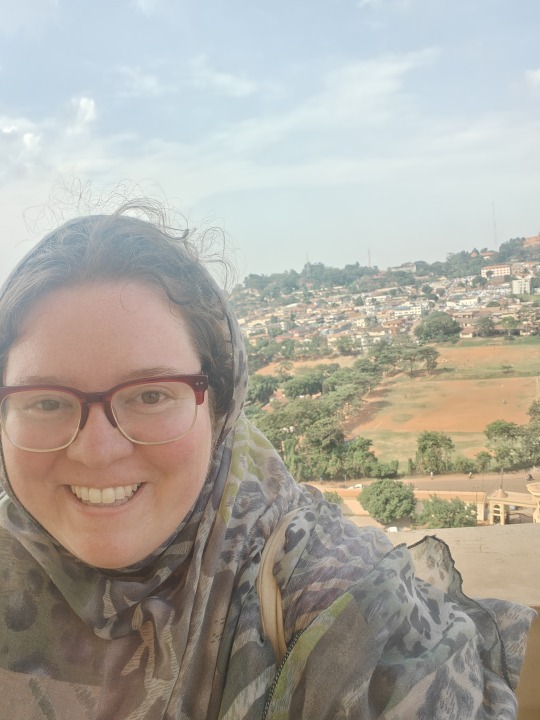
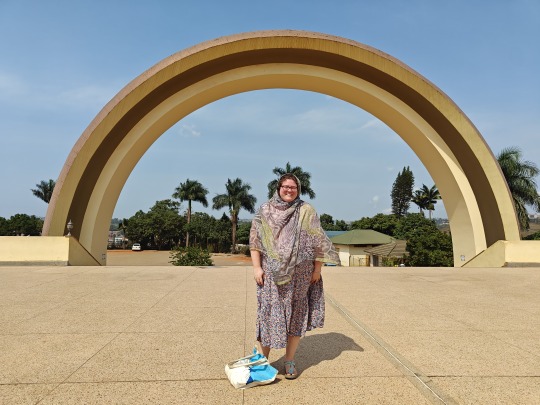
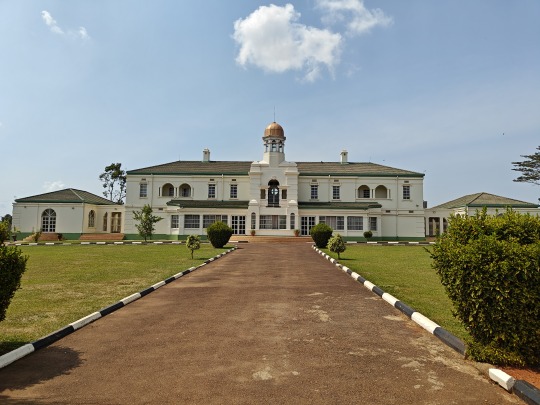
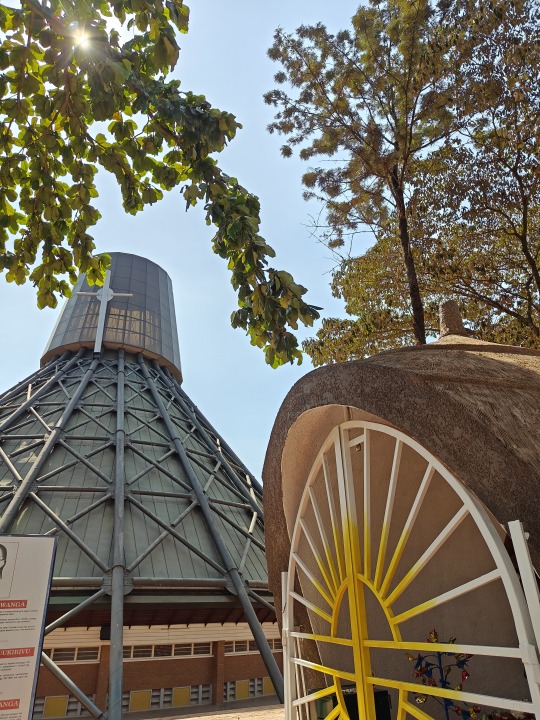
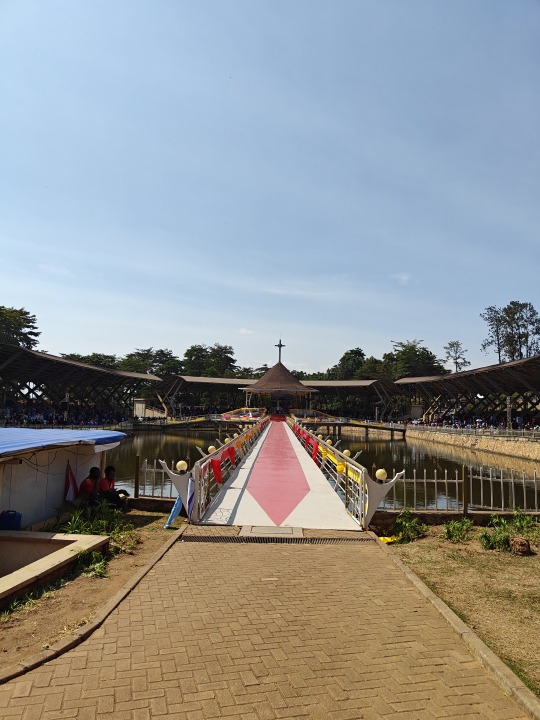
Back in Uganda again - 10 years later
Stepping off the plane in Entebbe, I was surprised how familiar everything still feels. The air smells the same, the accents tickle the ear the same way, the shops are brightly painted with the same paints. To be back somewhere after nearly ten years is such a blessing. I often find myself thinking about how much has changed since 2015--I now have a bachelor, a masters, and a new citizenship, I survived a global pandemic, I moved to Vienna (twice)--but I also marvel at how much is the same. Returning to Red Chilli, the same hotel where my Ugandan adventure began last time brought a special sort of nostalgia.
But last time I was here, I missed out on touring Kampala. So this time, I was determined not to make the same mistake twice. I set off bright and early on a city tour of Uganda's capital. We started with a tour of the Old Taxi Park, where you can catch a ride to anywhere in Uganda--and some places even farther than that. Following the taxi park, we did a quick jaunt through the Okiwano Market, the biggest market in the city.
After, we made our way up Old Kampala Hill to the Gaddafi National Mosque. The mosque sits on top of the tallest hill in the city, where the British first built their colonial capital. The mosque was first begun by Idi Amin but was not completed before he was ousted in 1979. The mosque remained incomplete until 2002, when Gaddafi visited Kampala and pledged to finish the project. The mosque is built with wood from the Congo, carpets from Turkey, lamps from Egypt and art from Saudi Arabia. After the tour of the interior, we walked up the 292 steps (woof) of the minaret to see the best view of Kampala; from the top, you can see the city stadium, the first Anglican church and the first Catholic church in the city, and the Makerere University campus.
Next, we traveled to Kabaka Palace, where the kings of Buganda Kingdom used to live. The palace was built in the late 1880s and housed three Bugandan kings before it was commandeered by Idi Amin's forces in the 70s. The palace armory then became the scene of torture and execution for thousands of innocent Ugandans. The guide told me to take a picture of the torture chamber, though I have not included it here, so that I could "remember the horrors of that time."
After perhaps the most depressing part of the tour, we went to lunch. For lunch, we stopped at a small local restaurant called Maama Barbarou, where we feasted on rice, brands, beef stew, yams and more to fortify us before our final stop.
Last, but not least, we visited the Martyr's Shrine, which was built at the site where the 32 first Christians in Uganda were killed for their faith in the late 1800s. The church is magnificent, built in a circular shape to resemble a traditional African home, the interior made of magnificent mahogany wood. On the 3rd of June every year, the area is overtaken by over one million pilgrims, many of whom walk from their homes in Uganda, Rwanda, Kenya, Tanzánia and Burundi. While I was visiting, the guide showed me the exact spot where the martyrs were burned alive, which is now where the church's alter sits. Outside, there is a large amphitheater, which was filled with pilgrims celebrating their faith.
Though the tour of Kampala was a little depressing, I am glad they I got to bettet understand the city and her people before heading to my next location.
2 notes
·
View notes
Text
Ssentamu Churchill James is 91st Guild President, Makerere
#bobi wine#Makerere Guild Elections#Makerere guild President 2025#Makerere university 91st guild President#Makerere University Guild elections 2025#Ssentamu Churchill James#Who is Ssentamu Churchill James#Who is the 91st guild President at Makerere
0 notes
Text

One of the Kiira EV buses built by Makerere University students
2 notes
·
View notes
Text




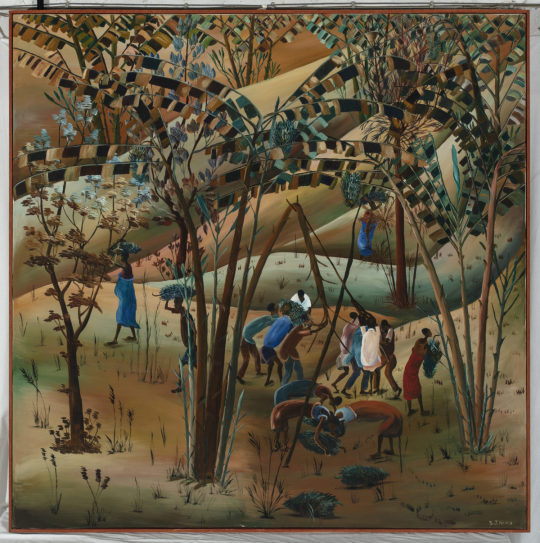



Samuel Ntiro (1923–1993)
Sam Ntiro was a Tanzanian artist. He studied Fine Art at Makerere College in Uganda and then at Slade School of Art in London. After graduating he lived in Dar es Salaam, where he became a successful artist and a champion of Tanzanian art. Among his many achievements, he was also the Tanzanian Ambassador to Great Britain from 1961 to 1964.
3 notes
·
View notes
Photo
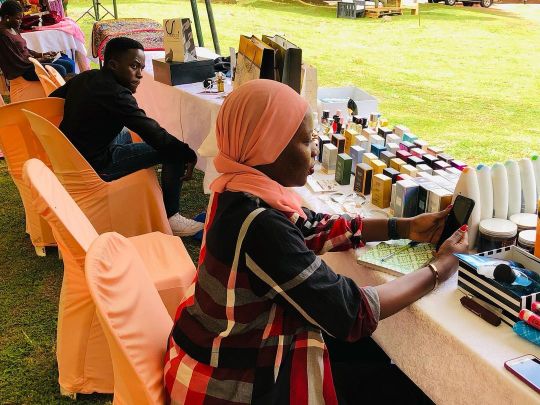
Don't miss the exciting Market Day!! #HappeningNow at Julius Nyerere Leadership Centre (JNLC) at Plot 111 Pool Road, Makerere University. #WomensMarketDay #MarketDay https://www.instagram.com/p/CqNZiMMNpEh/?igshid=NGJjMDIxMWI=
5 notes
·
View notes